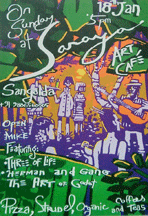In
the early 1900s,Cuba found itself in its worst food crisis when trade
treaties with the Soviet Union dissolved with the latters breakdown in
1989 and American trade embargoes were levied.Soon,the 72 per cent
urbanised nation was back on its feet,flashing a green thumb at
detractors.Flowering green patches popped up between buildings,behind
street walls,in balconies and window sills,and residents turned into
self-reliant urban farmers.In 2006,Havana reportedly had close to
300,000 gardens of different sizes that produced three million tonnes of
food. Closer home,theres a microcosm of a similar revolution brewing.With even the well-heeled taking a second look at their grocery bills and lamenting the latest assault from the onion,some Mumbaikars are turning into urban green thumbs who grow what they eat in their own 1-BHKs and hold workshops to educate others about the joy of urban farminga phenomenon that reduces the carbon footprint of food transportation and provides insulation from inflation. Sunita Mohan,a former copywriter who runs Urban Gardener,a blog and consultancy service that has helped edible gardens spring up in several balconies,window sills and kitchen patches,dreams of the day the unaesthetic box grills that jut out of most city apartments get converted into lush microfarms.If we clear out the clutter and grow at least some of our food,we will make things easier on our pockets.Did you know that this is the time when we grow onions in Mumbai and nearby areas These shortages are always around the corner, she says. A decade ago,there were few avenues to learn urban farming techniques and as a result,most first-generation urban farmers in Mumbai burnt and learnt.But now there are workshops on the subject.Adrienne Thadani and Karen Peters,who created the terrace garden at the Bombay Hub in Bandra,recently conducted two crash courses in the basics of urban farming.The workshops included notes about how leafy vegetables thrive in the shade and tomatoes soak up the sun,where to source the right kind of nutrient soil in Mumbai (they recommended amrit mitti,a soil mixed with cow dung,cow urine and jaggery developed by NGO Urban Leaves) and even guided participants through the art of sowing a basil seed in plastic containers.The Hub garden has produced herbs like basil,spearmint,peppermint and lovely veggies like okra,eggplant and tomatoes which are all organic, says Hub host Guncha Khare,adding that the produce will later be sold as the Hub Harvest. Preeti Patil,a catering manager who turned the 3,000-sq-ft terrace at the Mumbai Port Trust into a kitchen,also conducts workshops to bust myths about urban farming (about how,for instance,feeder roots dont break into the floor and need only nine inches of soil) and happily assists urban farmers looking for advice. Urban farming gurus usually advise first-timers to start with basics like curry leaf plants,chilli,tomato plants,aloe vera,seasonal vegetables,beans and herbs.But one of the most crucial lessons that students take home is the fact that creating an apartment garden is different from the usual bungalow-style farm.Apart from the space constraints,overexposed terraces,too much shade or reflected heat from buildings have to be taken into account.But this does not mean it is impossible to grow anything, says Mohan,adding that there are varieties of a single plant which may have been bred to suit citybased growing conditions. According to Mohan,most urban gardeners get easily frustrated by the dire lack of garden supplies and information on how to improve the unfavorable clay soil.And even the little information available (mainly online and in gardening books) is geared to help gardeners in temperate climates,which means that its not of much help for us tropical gardeners, she says,adding that she has now started supplying seeds and saplings because most nurseries stock the same indoor plants. The popularity of urban farming is compounded by the fact that more Mumbaikars are conscious of not only what they eat but also what is going into what they eat.The only way to be sure is to grow it yourself, she says,adding that she frequently gets asked about plants like passion fruit,broccoli,cherry tomatoes and Kafir lime.I love it that people are getting adventurous about what they grow, she says. Kolkata-based urban farmer Bharat Mansata,who is the author of Organic Revolution and one of the owners of a piece of regenerated forest land in Maharashtra,believes that in todays times farming should not be a luxury but a necessity.We take our food for granted.When its no longer available,we wake up, he says,adding rhetorically,Why wait for that long
|
|
|
| < Prev | Next > |
|---|


















